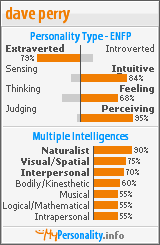
This image works for me on many levels. As someone with a busy, demanding job I recognise the feeling of being under continual pressure, of holding the weight of difficult issues and situations for prolonged periods of time. On several occasions I have learned the hard way how such unremitting stress has a nasty tendency of catching up with me. I know what it feels like to be off work and just another statistic in time lost to the British economy through stress-related illness. After the last such episode I decided to do something positive to break the cycle.
Whilst on sabbatical in 2006 I had read some of Zen Master Thich Nhat Hanh's books and was attracted to his practice of mindfulness. A quick Google search soon turned up the fact that these techniques had been introduced to medicine as a way of reducing stress and improving wellbeing. I discovered the work of Jon Kabat-Zinn, the founder of the 8 week course in mindfulness based stress reduction (MBSR) at The Center for Mindfulness at the University of Massachusetts Medical School, and read his book Full Catastrophe Living. He speaks about MBSR in this video from the University of California San Diego Center for Mindfulness, which is well worth a look if you are interested in exploring mindfulness for yourself. A much shorter introduction to what MBSR is about is the excellent book Heal Thyself by Saki Santorelli, one of Kabat-Zinn's colleagues.
All of this reading was like becoming aware of the smell of fresh bread; you just have to taste some for yourself. Thankfully it is possible to take the 8 week course in MBSR via distance learning in the UK. I signed up for the one offered through the Centre For Mindfulness Research And Practice at the University of Bangor. This involves daily home practice and a weekly 45 minute phone call with a tutor, with an optional day of silent practice in Bangor for everyone on the course. Put simply, it has changed my life. But be warned; the course opens up all sorts of painful self-awareness, not least of our automatic ways of coping with stress and deep-seated and unhealthy patterns of thinking and negative self-talk. Yet the essence of mindfulness is that it cultivates a freeing non-judgemental awareness. In my experience it brought the promise of Jesus alive: and you will know the truth, and the truth will make you free (John 8:32).
Anywhere at anytime I can simply focus on my breathing and be myself in the present moment. It feels rather like immersing myself in a warm bath and relaxing deeply. If situations get tough and unpleasant it is simplicity itself to use the 'three minute coping with difficulty breathing space'. Living in the present moment, giving attention to the present moment, being aware that thoughts are not facts and being gentle and non-judgmental when negative self-talk arises has transformed the quality of my life. I now cope with stress and truly feel that the rusty hinge won't fail.
In Christian terms MBSR has led me to experience in the most profound way what it is to be still, and know the healing and delightful presence of God in each moment. The serenity prayer of Reinhold Neibuhr really does come alive when we practice moment-by-moment awareness.
- God grant me the serenity to accept the things I cannot change,
- courage to change the things I can,
- and the wisdom to know the difference.







thank you for the image- it works for me too... great blo btw :-)
ReplyDeleteInteresting...
ReplyDeleteThanks for sharing this info..
I would like to share that developing good habits and suppressing bad habits always helpful in overcoming stress symptoms. Here is a proven way to reduce stress habits. Believe me it worked for me and I hope it can be useful to every one to deal with stress habits.